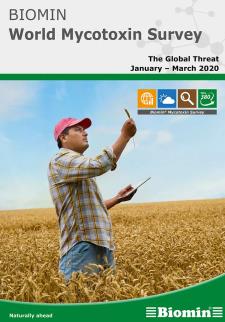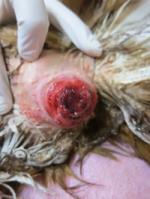 In a recent article by Lorran Baeumle-Gabardo, Biomin reviewed the potential damage caused by Zearalenone (ZEN) intake in hens. The 2020 Biomin World Mycotoxin Survey showed that 67 percent of feed samples were contaminated with ZEN and during 2016-2020 levels of recovery from ingredients using sensitive spectroscopic assay ranged from 58 percent to 77 percent with concentrations ranging from 42 ppb to 79 ppb.
In a recent article by Lorran Baeumle-Gabardo, Biomin reviewed the potential damage caused by Zearalenone (ZEN) intake in hens. The 2020 Biomin World Mycotoxin Survey showed that 67 percent of feed samples were contaminated with ZEN and during 2016-2020 levels of recovery from ingredients using sensitive spectroscopic assay ranged from 58 percent to 77 percent with concentrations ranging from 42 ppb to 79 ppb.
Since Fusarium spp. produce ZEN, deoxynivalenol (DON) and fumonisins (FB), proliferation of Fusarium can result in the presence of multiple mycotoxins in an ingredient resulting in a synergistic toxic effect.
 Although poultry are relatively refractory to ZEN compared to swine or ruminants, metabolic changes occur in turkey poults and chicks and laying hens as a result of toxicity. Controlled studies have demonstrated that the estrogenic effect of ZEN can result in cystic hyperplasia of the oviduct, regression of the testes in cockerels and prolapse in mature hens.
Although poultry are relatively refractory to ZEN compared to swine or ruminants, metabolic changes occur in turkey poults and chicks and laying hens as a result of toxicity. Controlled studies have demonstrated that the estrogenic effect of ZEN can result in cystic hyperplasia of the oviduct, regression of the testes in cockerels and prolapse in mature hens.
Due to metabolic effects, ZEN intake at sub-toxic levels will decrease feed conversion efficiency. Unfortunately, ZEN is not absorbed by commonly used mycotoxin binders but is susceptible to enzymatic degradation.